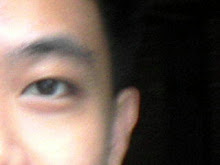WASHINGTON - For a second straight meeting, the Federal Reserve has decided to remain on the sidelines and leave interest rates alone. In the opinion of many economists, that stance may prevail not only for the rest of this year but well into 2009.
The thinking is that the Fed doesn't want to cut interest rates further because of concerns about inflation. However, at the same time, the majority of Fed officials don't want to start raising interest rates because the economy is still hobbled by mounting job losses, a prolonged housing slump and a severe credit crisis.
The Fed cited both worries about inflation and weak economic activity in the statement it released after Tuesday's meeting explaining its decision to leave its target for the federal funds rate, the interest that banks charge each other, unchanged at 2 percent.
The Fed may not have moved interest rates on Tuesday but it certainly moved Wall Street. Stocks, already soaring, extended their advance, with the Dow Jones industrial average finishing the day up 331.42 points, or 2.87 percent. It was the biggest one-day gain for the Dow since April 1.
Investors were cheered not only by relief that the central bank did not signal that rate hikes were imminent but also by a continued drop in crude oil prices, which fell as low as $118 a barrel during the day and are now down $28 from levels seen on July 11.
The lower oil prices not only help motorists when they fill up — gasoline has fallen as well in recent weeks — but also help the Fed by relieving inflation pressures.
In a brief statement explaining Tuesday's decision, Fed Chairman Ben Bernanke and his colleagues said the central bank is still concerned about the weak economy and the dangers posed by inflation.
"Although downside risks to growth remain, the upside risks to inflation are also of significant concern to the committee," the Fed said, splitting the difference between the two opposing forces battering the economy.
Analysts said the bottom line message from the statement is that the Fed doesn't plan to make any changes in rates any time soon.
"Unless something really weird happens, I don't see the Fed moving before the November election," said David Wyss, chief economist at Standard & Poor's in New York.
Many economists believe that the overall economy, as measured by the gross domestic product, will post moderate growth of around 2 percent in the current July-September quarter, helped by consumers continuing to spend the rebate checks sent to 130 million households. But activity is expected to plunge significantly in the final three months of this year and early in 2009 as the impact of the rebate checks wears off.
Wyss said he is looking for GDP to actually shrink in both the fourth quarter and the first quarter of next year, fulfilling the standard definition of a recession as back-to-back quarters of negative GDP.
However, Wyss looks for growth to start rebounding next spring as the problems related to housing begin to lessen. It is then that he believes the Fed will start raising interest rates as it turns its attention to making sure a rebounding economy doesn't ignite inflation.
The November presidential election is another reason many economists believe the Fed will prefer to keep rates unchanged at its next two meetings on Sept. 16 and Oct. 28-29.
"The Fed doesn't like to be in the spotlight during the heat of a presidential campaign," said David Jones, chief economist at DMJ Advisors. "I think they will prefer waiting now until they can get a better view of how the economy is unfolding and see if financial markets become less fragile."

No comments:
Post a Comment